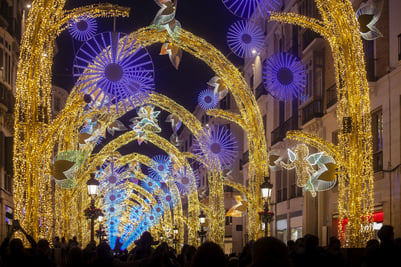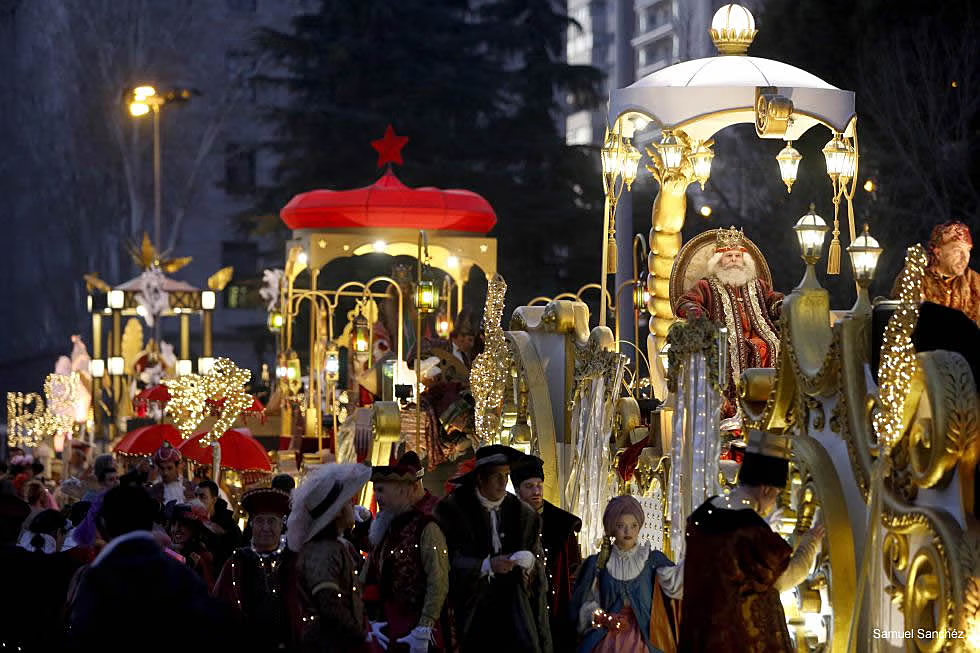Christmas in Spain: From El Gordo to New Year's Day
Christmas in Spain is an enchanting time full of traditions, celebrations and culinary delights. In early December, Christmas cheer already spreads through the streets of cities and towns, where festive lights are hung. Shops are also festively decorated and illuminated. Village squares and city harbours host Christmas markets, where you can enjoy delicious local delicacies such as turrón (nougat), polvorones (crumbly biscuits) and hot chocolate with sugared churros (oblong oil balls). It is the perfect opportunity to get together with friends and family and enjoy a cosy atmosphere.
The actual celebrations begin on 22 December with the famous lottery, El Gordo. This national lottery is not just a game of chance; it is a tradition that brings families and friends together. It is fair to say that every Spaniard wants to get a ticket for this lottery. The draw is broadcast live on television every year, with cheerful children from the San Ildefonso school singing the winning numbers. The enthusiasm is unparalleled. For many Spaniards, winning a prize during El Gordo is a real Christmas miracle, and it often brings a wave of joy throughout the country.
![]()
Christmas Eve and Christmas Day
On Christmas Eve (24 December), known as La Nochebuena, families gather for a sumptuous dinner. This festive meal often consists of several courses, with dishes such as roast lamb or seafood taking centre stage. Father Christmas, ‘Papa Noel’, brings presents for the children. After dinner, many listen to the royal Christmas speech, after which they raise their glasses with cava to usher in the new season.
Christmas Day (25 December), El Día de Navidad, is usually a quieter day to recover. It is wise to get a good rest on this day, as several more holidays follow to close the old year and welcome the new one.
28 December
This day is known as ‘Día de los Santos Inocentes’ (Day of the Innocent Saints). Its origins lie in the Catholic tradition, but today the concept is very similar to the US April Fools' Day or the Dutch 1 April.
On this bank holidays, people play pranks on each other. Even the Spanish media take part, often broadcasting absurd stories on TV and radio. So if you are in Spain on 28 December, it is wise to take everything you hear with a grain of salt.

New Year's Eve
Then the big night arrives: New Year's Eve, or La Nochevieja. On 31 December, friends and family gather for a festive dinner in appropriate attire, often in restaurants or hotels. The most famous tradition is to eat 12 grapes at the 12 chimes of midnight, for good luck in the new year. Each grape symbolises a month of the coming year. It is a hilarious and sometimes chaotic affair, but a great way to end the old year and welcome the new. The festivities often go on until the early hours.
Reyes
The Christmas period traditionally continues in Spain until 6 January, Three Kings (Reyes). You can read more about this celebration in the following blog.
In short
Christmas in Spain is a unique experience full of warmth, tradition and togetherness. From the excitement around El Gordo to the festivities at Christmas and New Year, it is a time when families come together, create new memories and celebrate the magic of the season. Should you ever get the chance to spend the holidays in Spain, grab it with both hands!
.png?width=774&height=322&name=oficina%20%20kantoor%20IMMOFY%20(2).png)



